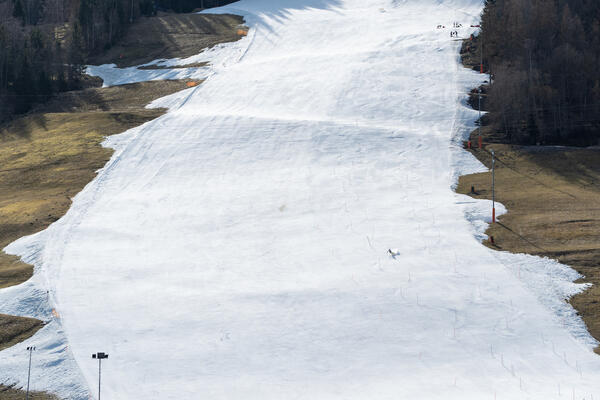
Waterloo leads international discussion about water
Representatives from four countries are meeting with water quality experts at the University of Waterloo today to learn about monitoring and managing shared water resources

Representatives from four countries are meeting with water quality experts at the University of Waterloo today to learn about monitoring and managing shared water resources
By Media RelationsRepresentatives from four countries are meeting with water quality experts at the University of Waterloo today to learn about monitoring and managing shared water resources. The University of Waterloo is the only Canadian university ranked among the top 10 international water research institutes by Lux Research.
Environment Canada, the University of Waterloo’s Water Institute and the Faculty of Environment are hosting a delegation of 20 officials from the Mekong River Commission. The commission is an inter-governmental agency that works directly with the governments of Cambodia, Lao People’s Democratic Republic, Thailand and Vietnam on the joint management of transboundary water resources and sustainable development of the Mekong River.
The visit will feature presentations by several experts from the Water Institute, the Grand River Conservation Authority and the Southern Ontario Water Consortium, including:
· Professor Philippe Van Cappellen, Canada Excellence Research Chair, on water quality monitoring
· Professor Derek Armitage on science and policy issues in transboundary contexts
· Professor Larry Swatuk on implementing water resources management
· Professor Nandita Basu on water quality assessment
· George Sousa on monitoring and managing the Grand River Watershed
· Evelyn Allen on water innovation in Southern Ontario
When: Tuesday October 22, 2013 from 1 to 4 p.m.
Where: University of Waterloo, Carl Pollock Hall, Room 3602

(GettyImages/amriphoto)
Read more
Study reveals changes International Olympic and Paralympic Committees could implement to keep Games viable and safer for athletes

Read more
An ambitious research collaboration with Habitat for Humanity is reimagining home ownership across Waterloo Region and Canada

Read more
Here are the people and events behind some of this year’s most compelling Waterloo stories
The University of Waterloo acknowledges that much of our work takes place on the traditional territory of the Neutral, Anishinaabeg, and Haudenosaunee peoples. Our main campus is situated on the Haldimand Tract, the land granted to the Six Nations that includes six miles on each side of the Grand River. Our active work toward reconciliation takes place across our campuses through research, learning, teaching, and community building, and is co-ordinated within the Office of Indigenous Relations.